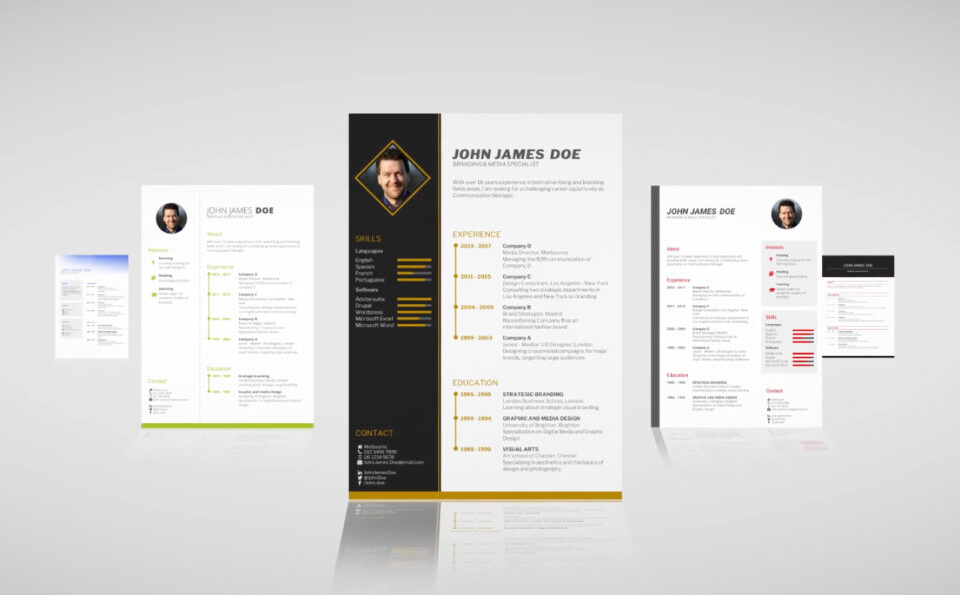CV Mistakes That Students Should Avoid

Aligning Your Online Presence and CV When Job Searching
October 9, 2025
How to Write a Resume in 2025 for C-Suite and Leadership Roles
November 1, 2025Developing a CV is an essential part of job seeking for students, whether it is for internships, part-time work, or graduate roles. Your resume is your first impression, so it better be like a first date, though short of a proposal.
In today’s blog, we’re going to deconstruct some of the most common CV mistakes students make and offer some practical dos to help you get ahead of the competition.
Table of Contents
ToggleUsing a One-Size-Fits-All CV
Students’ biggest mistake is using the same CV for every application. Employers will know when they are reading an all-round CV, and ultimately, it shows a lack of effort and even care for the specific position.
How to avoid it:
Tailor your CV for each job. The key is to incorporate keywords from the job description into writing that reflects your unique style. Include words from the job listing, the specific skills/experience the listing is looking for, and a summary statement that is closely aligned with the employer’s requirements.
How to Write a Lame Personal Statement
Your statement (or career objective) is your CV’s opportunity to make a good first impression and sell yourself. If the wording is too vague, too broad, or doesn’t match the role it can distance potential employers.
How to avoid it:
Write a focused, clear statement about who you are, what you provide, and what you’re looking for. The only exception is a secret ingredient: clichĂ©s like “hardworking” and “team player” are okay, too, as long as you back them up.
And if you ever feel confused or flustered, don’t hesitate to ask for help. CV writers in Bahrain know how to effectively present a CV and where to find opportunities for CV networking.
Poor Formatting and Layout
A cluttered and confusing design can make your CV difficult to read, even if the actual content is good. It’s a sad fact of life that many recruiters spend fewer than 10 seconds reviewing a CV so visual clarity is crucial.
How to avoid it:
Format cleanly and professionally. Use one to two fonts and bullet points to make it easy to read, and organize sections well with nice, clear headers. Steer clear of fancy designs unless you are applying for a creative position.
Describing Duties Instead of Accomplishments
Three-quarters of students tend to include their responsibilities from past roles or internships rather than concentrating on what they were successful at doing.
How to avoid it:
Use bullet points to represent achievements. Lead with action verbs like developed, led, increased, or organized, and whenever you can, add numbers.
Redundant Information exclusion
The fear of an empty CV means many are encouraged to write down things out of desperation to fill the page, filling it with details such as irrelevant hobbies or their part-time job from when they were 14.
How to avoid it:
Be selective. Draw on experiences and skills that will enable you to perform the role you’re applying for. Short, focused resumes are much better than long , flabby ones.
Grammatical Errors and Typos
Spelling and grammatical errors are some of the quickest ways to put the kibosh on your chances
How to avoid it:
Read through your resume many times and use Grammarly. Even the slightest missteps can paint you in a poor light.
Using Unprofessional Language or Email
You can lose a man immediately if your slang game isn’t up to par, if your informality isn’t hitting the mark, or if you’re giving off unprofessional contact information.
How to avoid it:
Try and remain polite language-wise. And  be sure your email address is professional, if possible, a combination of your first and last name (e.g., john.smith@email.com).
Underweight in Soft and Transferable Skills
Students often lack work experience, but that’s no reason to think they have nothing to offer. It is a common mistake not to emphasize soft skills such as communication, teamwork, or leadership.”
How to avoid it:
Lean on school projects, volunteer gigs, team assignments, or extra activities to demonstrate your soft skills. How will these experiences make you a stronger Candidate?
Lack of Structure or Headings
A CV without structure is likely to confuse recruiters. They need to know certain things right away education, experience, and skills, for instance.
How to avoid it:
Follow a clear CV format. Use sections like:
- Personal Information
- Personal Statement
- Education
Too Long or Too Short
A CV can lose the recruiter’s interest if it’s too long or too short, and it can appear as if you haven’t done enough.
How to avoid it:
Try to keep it to one page if you are a student or recent graduate. But try to focus on good fabric more than the quantity. Focus on the most salient and responsible details.
The Keywords are Missing for ATS Systems
Many companies use ATS (Applicant Tracking Systems) to sift through CVs. Your CV may not even reach a human reader if it is missing the right keywords.
How to avoid it:
Thoroughly read the job posting and incorporate relevant keywords, such as “data analysis,” “customer service,” and “social media management.” Work naturally, and these qualities will come through in your descriptions.
Final Thoughts
As a student, CVs are the key to your career opportunities. Steering clear of these frequent missteps can significantly increase your likelihood of securing interviews and making a good impression on employers.




